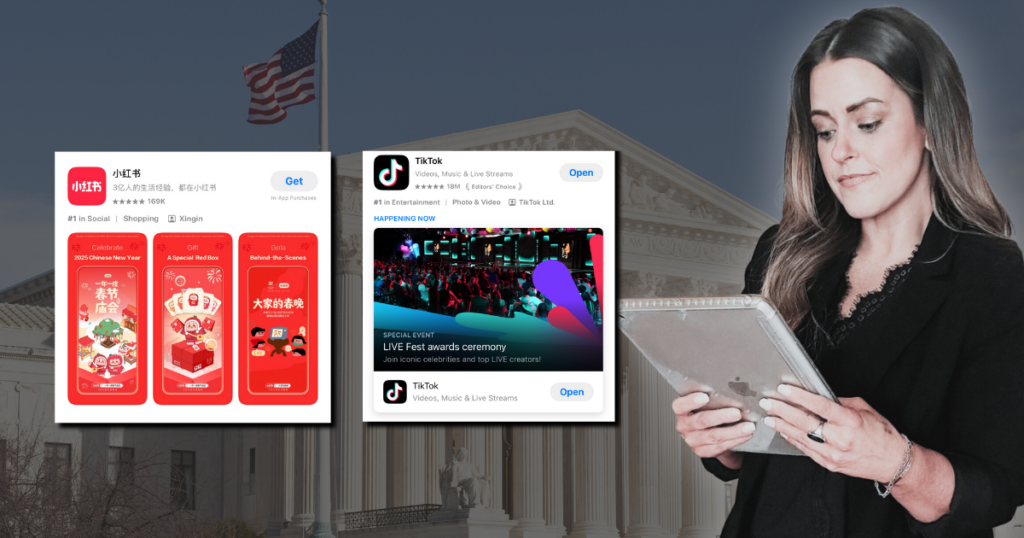Well, well, well, here we are. By the time you read this, you may have heard the Supreme Court's decision on the TikTok ban in the United States. Things haven’t exactly unfolded the way legislators thought they would. The years-long battle over TikTok’s future here in the U.S. is finally reaching its dramatic climax, but we’re now facing a plot twist that even the federal government didn't see coming.
The Big Picture: What Led Us Here?
If you’ve been following along, then you know this TikTok saga has been building momentum for months. In 2022, the U.S. government passed a law requiring TikTok’s parent company, ByteDance, to either sell the app to a U.S.-based company or shut it down entirely by January 19, 2024. The law came as a response to national security concerns—namely, the fear that the Chinese government could use TikTok’s data-harvesting capabilities to access personal information from American users.
President Biden signed the bill with bipartisan support, but TikTok and its users fought back, claiming that the law violates their First Amendment rights. The Supreme Court heard oral arguments on January 10, 2025, and it's been a week full of surprises to see how it will rule.
The TikTok Ban Countdown
With the uncertainty of how things would go, TikTok users have been scrambling for weeks to figure out how to get their voices heard to sway opinions on the TikTok ban. TikTok creators, influencers, and brands were considering similar apps for content distribution and pleading with their audiences to follow them on other social platforms like YouTube and Instagram.
They soon realized that it wasn't enough to just settle for the TikTok ban and put more effort into other platforms. They needed to take a stand that would really get the attention they were after.
The Revolutionary Movement: Who Needs TikTok When You’ve Got RedNote?
Last week, there was a massive movement on TikTok of people jumping ship to RedNote — the Chinese version of TikTok. Yep, you heard that right. While the government’s concern has always been that TikTok’s servers in the U.S. could still be accessed by the Chinese government, now we have users willingly hopping over to RedNote, an app whose servers are fully based in China.
In a stroke of irony, RedNote is now the number one downloaded app overall, surpassing even TikTok on both the Apple App Store and Google Play. Not only that, but RedNote is entirely in Chinese—it’s not even translated into English yet. So, not only are users moving to a platform controlled by the Chinese government, but they’re embracing it with open arms, oblivious to the potential concerns they’ve been asked to avoid.
This is a classic example of life throwing a curveball. The U.S. government was concerned about the Chinese accessing user data through TikTok, but now the very thing they feared is happening—people flocking to a Chinese-owned platform that’s much less secure for consumers.
The U.S. Government’s First Mistake: Underestimating the Power of Petty
So what went wrong here? It turns out that the government might have underestimated the emotional power of being petty.
Rather than simply grieving the potential loss of TikTok, U.S. users are showing they’re willing to be, well, a little petty. Instead of rolling over, they’re pulling a fast one by moving over to RedNote, knowing full well that it may cause even more of the data-sharing issues the government is so concerned about. The government’s biggest mistake was not accounting for how much users love their content creation platforms and how much they will fight back when they think they’ve been unfairly targeted.
The Road Ahead
As we have watched this unfold, the reality is clear: the broader war is far from over. People are adaptable, and they’re finding ways to keep doing what they do best—share content. It’s the type of resilience that makes us wonder if the U.S. government is asking the right questions in its push for data security.
This entire situation has been full of twists and turns. Whatever happens next, we can bet it’s not going to be simple. The evolving relationship between privacy, government control, and how far people will go to keep their digital lives intact is complex and multi-faceted.
Have you been following the saga? I welcome your thoughts on the subject in the comments below!
